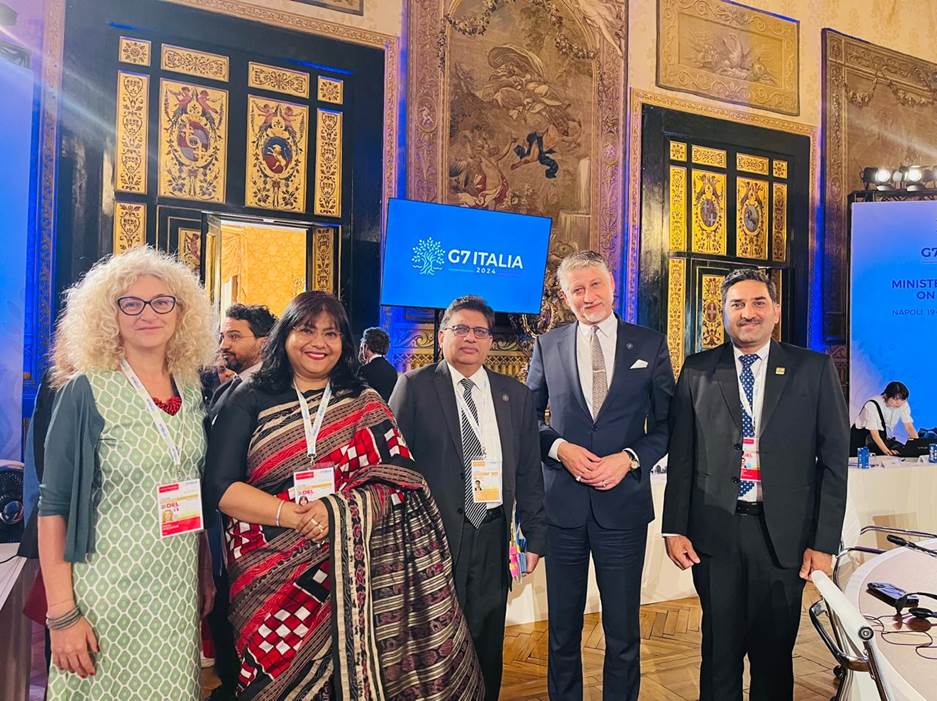Naples, Italy: The Indian delegation, led by Arunish Chawla, Secretary of the Ministry of Culture, participated in the Special Session of the G7 Ministers Meeting on Culture. The session, which focused on the role of culture in sustainable development, was attended by culture leaders from the G7 countries, the African Union, and key global organizations, including UNESCO and ICCROM.
In his address, Chawla emphasized that culture is not merely a relic of the past but a dynamic catalyst for growth and development. He advocated for culture to be recognized as a standalone goal in the post-2030 Sustainable Development Agenda. “As we approach the United Nations Summit of the Future, it is essential to advocate for culture’s inclusion as an autonomous goal within the Pact for the Future,” he stated.
Chawla highlighted India’s G20 Presidency, where the importance of synergizing the 1972 World Heritage Convention with the 2003 Intangible Cultural Heritage Convention was spotlighted on a global platform. He also noted India’s flourishing partnership with the African Union, marked by the Union’s recent admission as a permanent member of the G20 during India’s leadership.
“India and Africa’s collaboration in trade, education, healthcare, and sustainable development is a powerful testament to mutual cooperation and collective progress. The creative economy, particularly, holds boundless potential for harnessing humanity’s most sustainable and inexhaustible resource – creativity,” Chawla remarked.
India’s commitment to supporting African heritage was further underscored by its pledge of USD 1 million to enhance capacity building in Small Island Developing States (SIDS), Least Developed Countries (LDCs), and African nations. India also backed several African nomination dossiers at the 46th World Heritage Committee meeting, further strengthening cultural ties.
The G7 session concluded with the signing of the Naples Statement on “Culture for the Sustainable Development of Africa and the World.” This statement aims to leverage culture as a driver of sustainable development in Africa, promote knowledge-sharing with African governments, safeguard cultural heritage, and strengthen Africa’s presence on UNESCO’s heritage lists.
Chawla also held bilateral meetings with Italy’s Minister of Culture, ICCROM’s Director General, and the U.S. delegation. Discussions centered on enhancing cultural cooperation between India and these global stakeholders.





